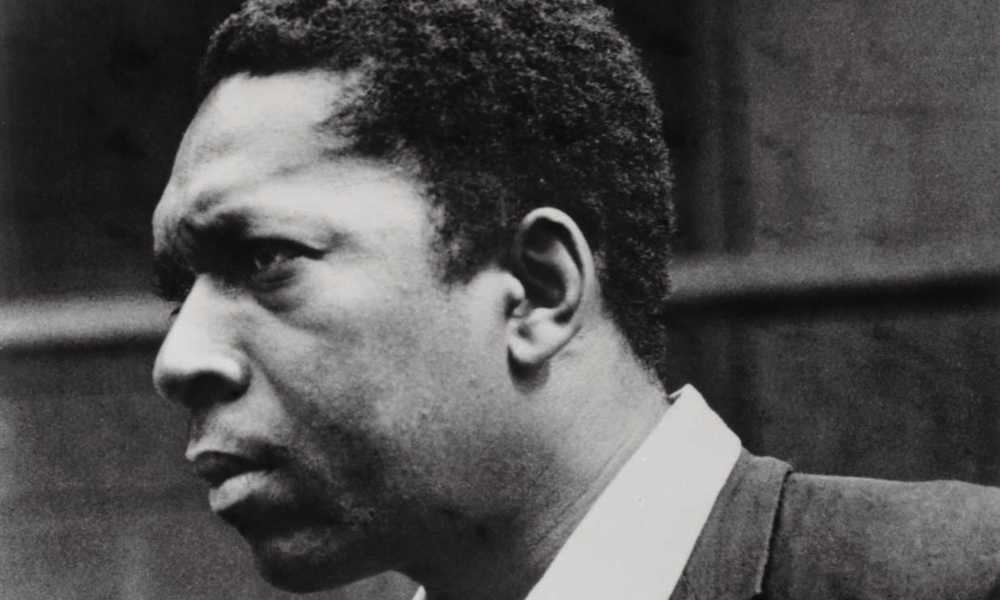Welcome to DU!
The truly grassroots left-of-center political community where regular people, not algorithms, drive the discussions and set the standards.
Join the community:
Create a free account
Support DU (and get rid of ads!):
Become a Star Member
Latest Breaking News
General Discussion
The DU Lounge
All Forums
Issue Forums
Culture Forums
Alliance Forums
Region Forums
Support Forums
Help & Search
The DU Lounge
Related: Culture Forums, Support ForumsRemembering A Jazz Giant: John Coltrane, September 23, 1926 - July 17, 1967
The Man They Called ‘Trane’, Remembering A Jazz Giant

https://www.udiscovermusic.com/stories/man-called-trane/
Born in North Carolina in September 1926, Coltrane’s father was a tailor and amateur musician able to play several instruments. Coltrane also showed an aptitude for music, studying the E-flat tenor (alto) horn, clarinet and alto saxophone in high school. Both of his grandparents had been Methodist ministers, and his maternal grandfather had been a famous gospel preacher throughout that part of the Deep South. Churchgoing was part of his upbringing and gospel music provided the soundtrack. When he was thirteen, both his father and grandfather died within a month of each other and after Coltrane graduated from high school in 1943, the family moved north to Philadelphia to make a new start. There he studied at the Ornstein School of Music and Granoff Studios, before making his professional debut in 1945 playing in a lounge band.
Following a short term serving in the Navy, Coltrane returned home and having played in the Navy band while stationed in Hawaii (1945–1946), he expressed an earnest interest in the alto saxophone. He worked with a series of bands over the following decade including Eddie Vinson (1947–1948), and he played alto and tenor with Dizzy Gillespie (1949–1951) and Earl Bostic (1952–1953). His first proper recording session was with drummer Teddy Stewart’s Orchestra – made up mostly of Dizzy’s band members – backing Dinah Washington on some singles for Mercury.
From 1953, Coltrane focused on tenor saxophone, playing with Johnny Hodges from 1953 to 1954; during this time he appeared on several of Hodges’ Norgran albums. In 1955, Coltrane secured the gig that brought him to a wider audience, playing in Miles Davis’ new quintet, with Red Garland, Paul Chambers and Philly Joe Jones.
Coltrane cited 1957 as the year of his spiritual awakening, when he rid himself of heroin and alcohol addictions, catalyzed by being sacked from Miles Davis’ Quintet. Coltrane had previously been fired by Gillespie for his escalating drug taking, and this time losing such a great gig and experiencing a near overdose was the wake-up call that he needed. He went cold turkey and cleaned up. After some tough times straightening himself out, he soon returned to play the second half of 1957 with Thelonious Monk’s Quartet, before once again joining Davis at the beginning of 1958.
InfoView thread info, including edit history
TrashPut this thread in your Trash Can (My DU » Trash Can)
BookmarkAdd this thread to your Bookmarks (My DU » Bookmarks)
4 replies, 386 views
ShareGet links to this post and/or share on social media
AlertAlert this post for a rule violation
PowersThere are no powers you can use on this post
EditCannot edit other people's posts
ReplyReply to this post
EditCannot edit other people's posts
Rec (5)
ReplyReply to this post
4 replies
 = new reply since forum marked as read
Highlight:
NoneDon't highlight anything
5 newestHighlight 5 most recent replies
= new reply since forum marked as read
Highlight:
NoneDon't highlight anything
5 newestHighlight 5 most recent replies
Remembering A Jazz Giant: John Coltrane, September 23, 1926 - July 17, 1967 (Original Post)
Miles Archer
Jul 2018
OP
Docreed2003
(16,855 posts)1. Would highly suggest the just released "Both Directions/lost album"
That was just released. It's incredible
JDC
(10,121 posts)2. Giant Steps
I listen to JC constantly. Thx!
procon
(15,805 posts)3. Saw him play in a little club in Texas in the 60s and loved jazz ever since. nt
ghostsinthemachine
(3,569 posts)4. wow. (NT)